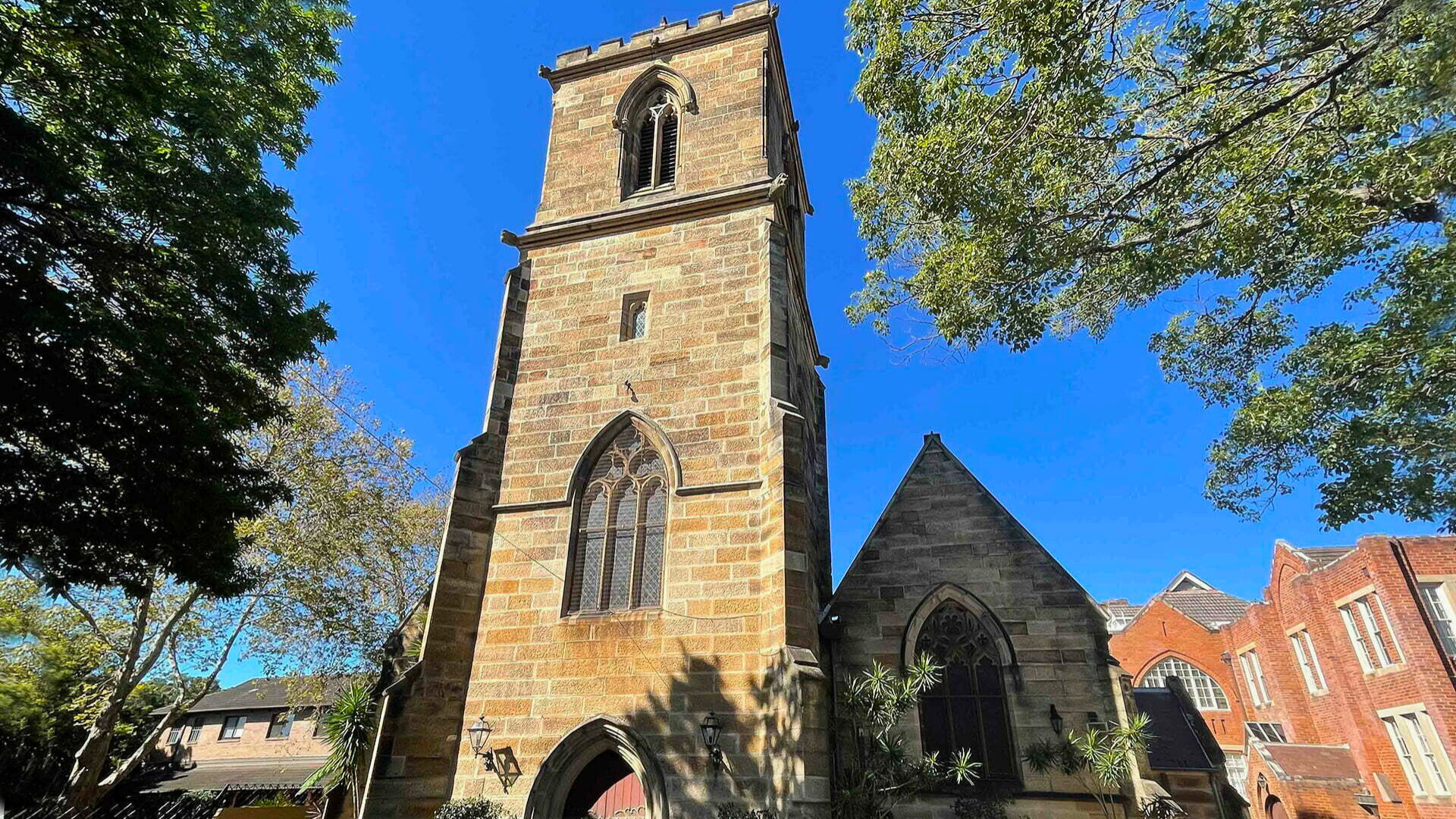Before proceeding to today’s article, presenting a rough, almost telegraphic, account of the contribution of Greek Orthodoxy, celebrating the Centenary establishment of the Greek Orthodox Archdiocese in Australia in 1924, I would like to clarify, to prevent possible reactions, from our expatriates, who may evaluate the concepts of Christianity and Greece from a historically hostile dimension to each other.
It is true that fanaticism, prejudice, ignorance and suspicion had led early Christians to intolerance in the first years of its spread and prevalence. Eventually this destruction of Hellenic culture and the Hellenes, was later followed by the reconciliation of these two spiritual and intellectual worldviews with the writings of the Church Fathers, who supported the Greek culture and philosophy and argued pervasively in their work that it is not possible to understand Christianity, without thoroughly researching Ancient Greek thought and philosophy.
Greek Orthodoxy for Greeks is not just a religion. It is inextricably and consubstantial with their national existence and completes their identity. For hundreds of years and, especially in the stone years of slavery, Orthodoxy was promoted as the ethnological, linguistic and cultural mark of the nation. As in the case of the Jews, national and religious status are not separated in the semantics of the term “Hellene.” Over the last 1500 years, associatively, historically, religiously, and culturally, the national and religious identities are consistent and constitute those individuals who consciously and collectively choose Hellas and Orthodoxy in order to legitimise and differentiate themselves against other peoples.
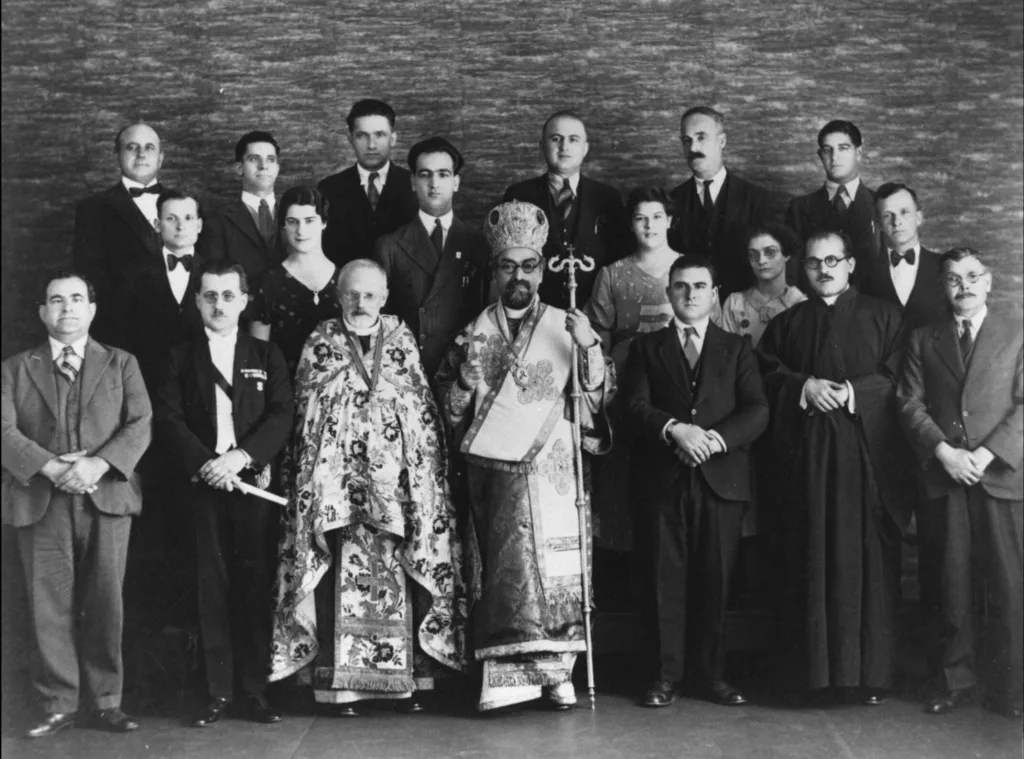
With this I want to argue empirically that in Greece and in the Hellenic Diaspora, which I researched for more than half a century, it is our religious feeling that characterises and defines us as a nation. For Greeks, inside and outside the walls, as I usually say, Orthodoxy is not a spiritual relationship, it is not only a faith. Orthodoxy for the Greeks of the world is also a national, social, cultural and, of course, political relationship.
And the above concepts are consistent and supported to be historically substantiated, because it was the leaders of the Communities, the immigrant fathers, the first settlers, these socially and economically persecuted, the needy and proletarians of the urban centers and peasantry who laid the foundations of the construction of the Greek communities in the world, and not the official Church, not the metropolitan State, who erected the churches and schools of the Greek Orthodox faithful in the vast Diaspora of the planet. It was the vital force of pioneer settlers, who conceived that they could not exist as Greeks without being Orthodox. Thus, they reconciled their national identity, with the Syrian-Lebanese and in other parts of the world with the Armenians, Serbs, Romanians and with the Russians, so that together they founded and operated their first churches, bringing priests from all the Patriarchates and Churches of the Ecumene. There in these churches they flocked on Sundays and holidays and remembered their own back home; there in these churches, several times, in the absence of Orthodox priests, they shared the roles of priest and cantors themselves, and the most educated sang and solved their spiritual needs “economically” for all these Orthodox, Serbs and Romanians and Syrian-Lebanese. It is for this reason that I maintain that Orthodoxy is not for the Greeks, over time, a sole spiritual relationship, it is not only a faith, but also their whole existence as individuals and family men.
It is this Orthodoxy which, as an apostolic mission, passed from Venezuela to Colombia and transferred the faith to the local Colombians. It is this fervour of Orthodoxy as a hope that passed from New Zealand to Korea and the Pacific islands, building Orthodox parishes. It is the Orthodox tradition witnessed in vast Mexico and Guatemala, where half a million former Catholics converted to Orthodoxy and today constitute the largest Christian Orthodox crew in Central and South America. It is Orthodoxy, as a mission and as an ideal, that attracts hundreds of clergy of other religious denominations to embrace Orthodoxy, from England to Japan and from African countries to Australia, feeling the impact it has on their spiritual fulfillment.
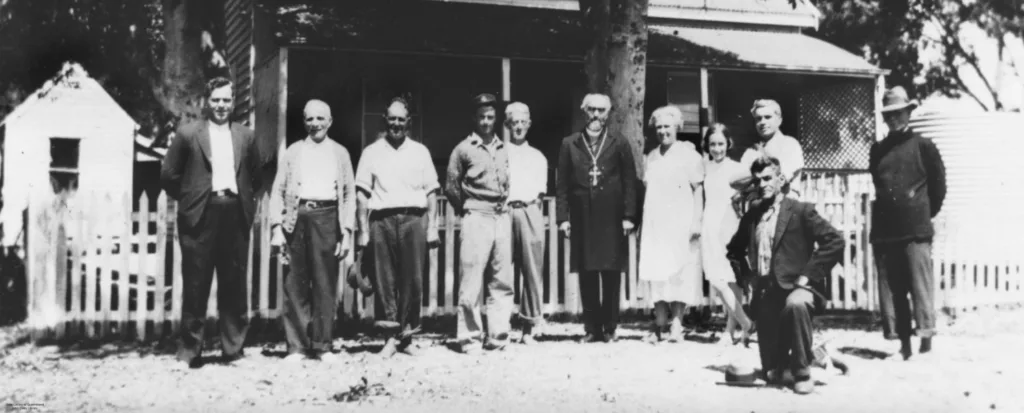
It is Orthodoxy, as a spiritual relationship, that characterises inter-married Greeks, whose foreign and alien spouses are inspired and through Orthodoxy many of them discover the diachronic Hellas, Greek thought and values and turn into militant Philhellenes in all neighbourhoods of the planet. Thousands of such Philhellenes who embraced Orthodoxy are the ardent supporters and advocates of Greek interests in foreign parliaments, courtrooms, universities, study institutes, diplomatic corps, athletic and cultural arenas, and excel as directors, artists, politicians, actors and writers.
However, Orthodoxy is also a culture that connects modern Greece with the Ottoman period and Byzantium. Because there would be no folk music, if it were not for Byzantine music (cosmic and ecclesiastical); we would not have the hymns, the chanting art; we would not have the wonderful and unique architecture that adorned the whole of Eastern Europe and the dozens of countries where Orthodox believers settled, we would not even have the ancient language and the writings of the ancient ancestors, the monuments of Western Civilisation, which were saved by the passion and devotion of thousands of Orthodox monks who copied the texts of Ancient Greek Literature and saved them from extinction and oblivion.
During the last forty years, I had studied the establishment and organisation of the Greek Orthodox Archdiocese of Australia (1924) through primary archival sources, researching the Archives of the Patriarchates of Alexandria and Jerusalem, the archives of historical Greek communities in all Australian states, the archives and minutes of meetings of Community bodies and fraternities, through the archives and columns of newspapers and, of course, the Dardalis Archives of the Hellenic Diaspora that we founded with my associates in the former EKEME, where original ecclesiastical and diplomatic documents from 1926 are being kept.
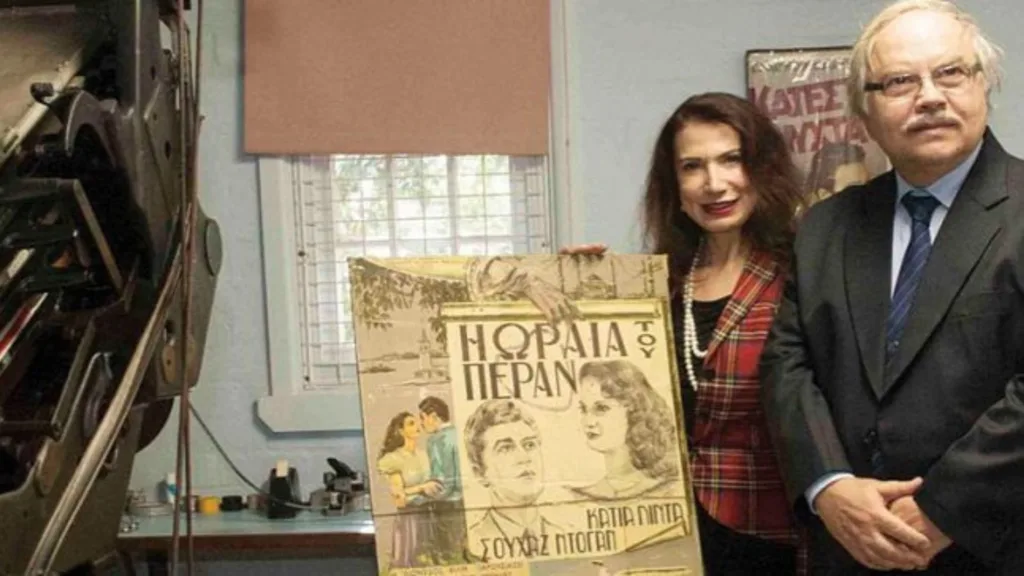
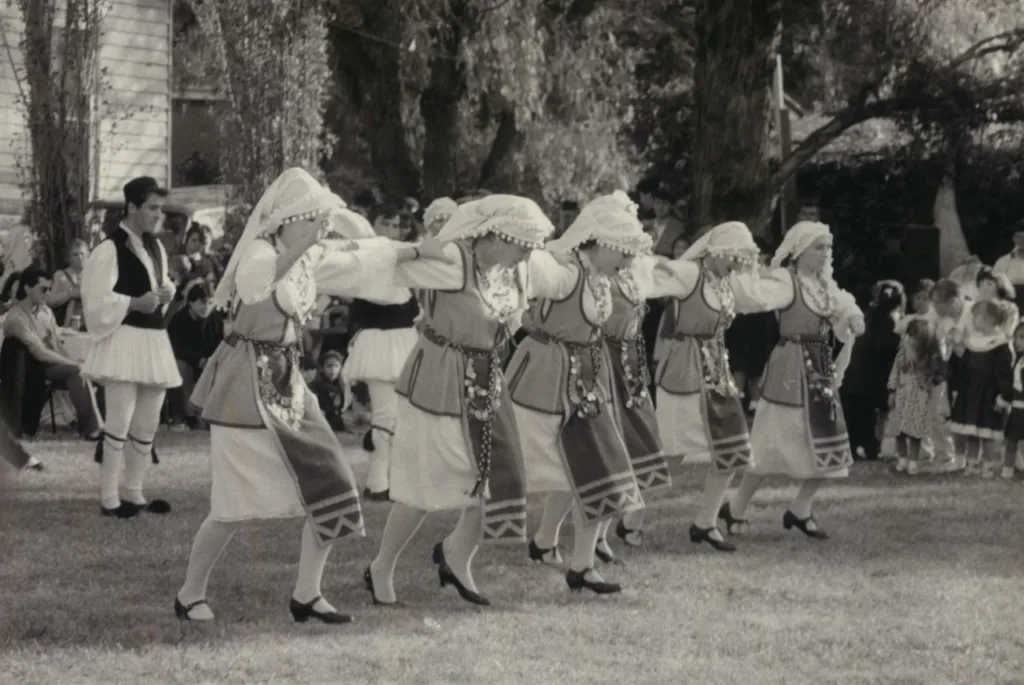
Studying, documenting and analysing these documents, I published three volumes of the History of the Greeks of Australia, and one with Cambridge University Press, a history that is essentially ecclesiastico-centric, since the Church was the epicentre of the development of Hellenism, always in conjunction with the maturation of our historical communities. I have expressed my views and positions there. In today’s article, I would like to make some anniversary remarks regarding the establishment, organisation and presence of the Greek Orthodox Archdiocese of Australia, as required by historical circumstances.
- The Hellenism of Australia remained spiritually unsephered, without religious guidance in the first decades of its settlement, taking over the historical communities and the members of the island brotherhoods to build the churches, hire priests and take care of the spiritual needs of the Orthodox settlers.
- The establishment and organisation of the Greek Orthodox Archdiocese of Australia and New Zealand was the result of historical and political developments that plagued Hellenism. The division and unstructured independence of the Orthodox parishes in America (the “Wild West” as it was called in the Patriarchates); the enforcement of the Ecumenical Patriarchal Tomos (March 1908), which placed the Greek Orthodox of the “barbaric” Diaspora, under its jurisdiction, removing them from the Church of Greece; and more importantly, the Asia Minor Catastrophe and the population exchange that followed, a few months after the signing of the Treaty of Lausanne (1923), and even before the beginning of the expatriation of hundreds of thousands of refugees and exiles of Orthodox Christians from their ancestral lands in Asia Minor (September 1924), deprived the Ecumenic Throne of its faithful. These adverse socio-demographic developments triggered the establishment of the Greek Orthodox Archdiocese of Australia and New Zealand, electing Samian Dr. Christoforos Knitis as its inaugural Metropolitan (February 1924).
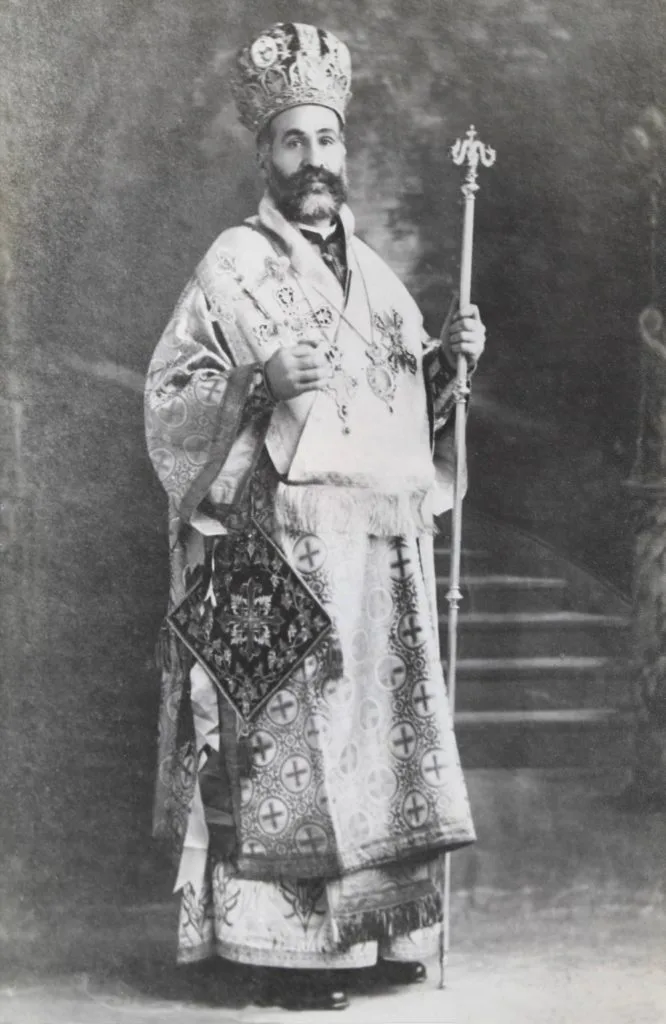
- The establishment and operation of the Greek Orthodox Metropolis caught unprepared the islander settlers that led the Hellenism of Australia and their organised communities. The new institution, which was arguably called upon to increase the cohesion of the Greeks, was novel for the organisation of the Greek settlers, lacked financial resources as well as functional infrastructure and the local experience. Moreover, the islander Greek settlers, both with the Brotherhoods and with the Communities that had founded, until then enjoyed unequivocally, exclusively their power over the Greek immigrants, had invested their savings and struggles for the survival and organisation of Hellenism, and of course they were not willing to compromise their exclusive authority in Australia with the new Metropolitan. Then, there were also inherent problems that characterise Hellenism until today.
The newly elected Metropolitan Christoforos, a well-educated and charismatic leader, despite any personal issues that arose during his term in office, which were raised mainly to justify the hostility, fury and relentless persecution of his opponents, which he largely unjustly suffered, would have fared better had it not been for two anathemas that characterise us as a race. First, the innate suspicion caused by the Greek’s intolerance, our guerrilla attitude, individuality, competitiveness and self-destruction that generates exaggeration in the way we react. The second anathema is local chauvinism. Thorough research in the archives of newspapers, communities and fraternities attest that the Hierarch was also a victim of the fateful and unfortunate event of being born a Samian. Christoforos was neither an Ithacan to have the blessings of the Greeks of Melbourne, nor a Kastellorizian to have a general support, and most importantly he was not a Kytherian, therefore, as a Xenos “foreigner” he had to be recalled or ostracised in every way. The instrumentalisation of the Orthodox clergymen employed by organised Hellenism offered a great opportunity as priests, who until then had no boss in their heads, to rebel against the Metropolitan.
- With the arrival two years later of Leonidas Chrysanthopoulos as a founding career diplomat in Australia, who, in addition to his purely diplomatic duties, was also called upon to protect the rights and interests of Greek citizens of Australia, a new political situation emerged for the first time in Australia. We have a dualism of power, that is, the case of the operation of two powers over the Hellenism of Australia, political/diplomatic and spiritual. This dualism, as was to be expected, gave birth to factions, courts of followers, and even gangs, with various names and shapes, as “consular” and “clergy-oriented.” As long as the elected Metropolitans were kind, tolerant, condescending, such as in the cases of the late Metropolitans Timotheos and Theophylactos, and Greece was going through difficult times, then between the two existing authorities, a good synarchy prevailed and at times, an even cautious and prudent dyarchy. However, when the elected Archbishops challenged the authority of the Greek State through its representatives, because the diplomats had a different perception, then the Archbishops, such as the late Ezekiel and Stylianos, attempted to impose their univocal and exclusive authority as Ethnarchs over the Greek State. This duality led to chronic and uncontrollable divisions and ruptures in the cohesion of Hellenism with tragic results. Of course, there was a third situation, when, in cases of synarchy, punitive decisions of the dyarchy were imposed on the Communities, resulting in the infamous schisms that still afflict Hellenism.
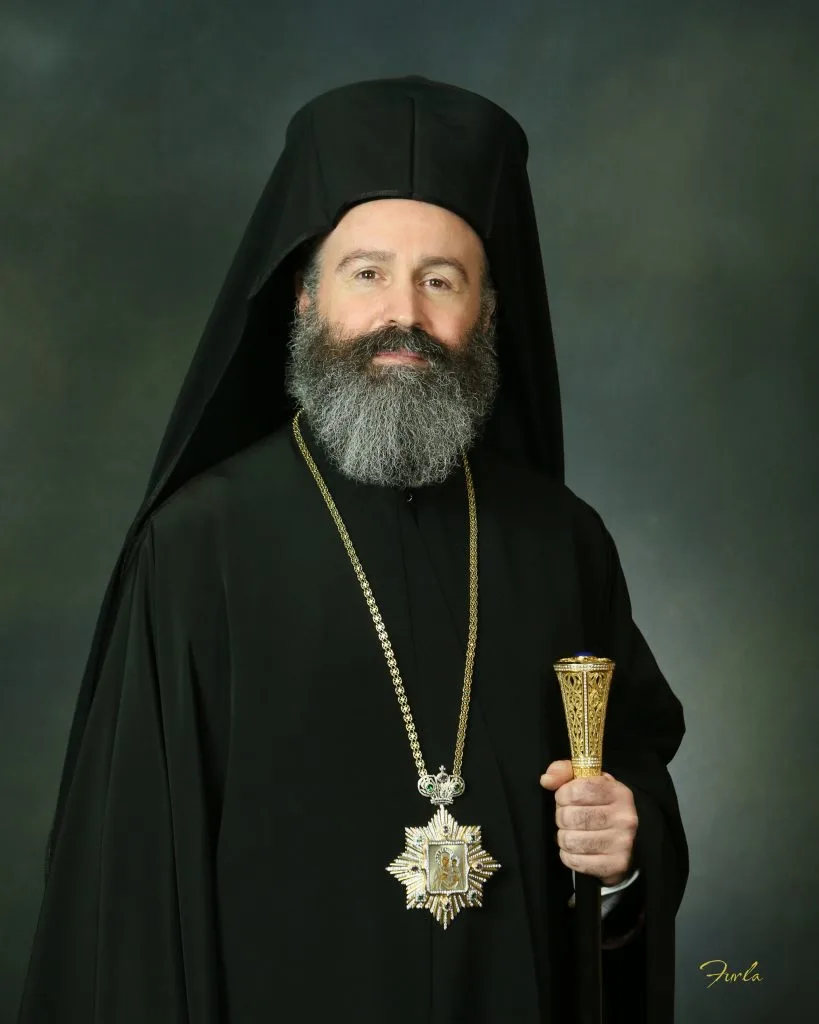
With the arrival of Archbishop Makarios in Australia, with the maturation and socio-economic networking of Hellenism, organised in a depth of six generations of Greek settlers since 1880, with a Greece that prospers, progresses and rightly holds the role of leader in the Balkans, having a say and strong allies, the Greek Orthodox Archdiocese must continue its spiritual and missionary role and work.
Emphasis should be placed on our disadvantaged youth, for whom more could have been done, as well as on our relationship with homodox of other Ethnicities, without compromising on national issues that concern us. Above all, however, Archbishop Makarios is an able leader and willing to highlight the need to preserve our ethnolinguistic identity. It is the Church, after the Family and educational institutions, that can help preserve and maintain the Greek language on an inter-generational level. The Greek language must remain the dominant language of communication in the churches, without deviations (believers do not go to church because they understand the language, but for reasons of faith). If we lose our family and the Church, we lose the two basic pillars that bind us together as Greek Orthodox.
*Professor Anastasios M. Tamis taught at Universities in Australia and abroad, was the creator and founding director of the Dardalis Archives of the Hellenic Diaspora and is currently the President of the Australian Institute of Macedonian Studies (AIMS).
